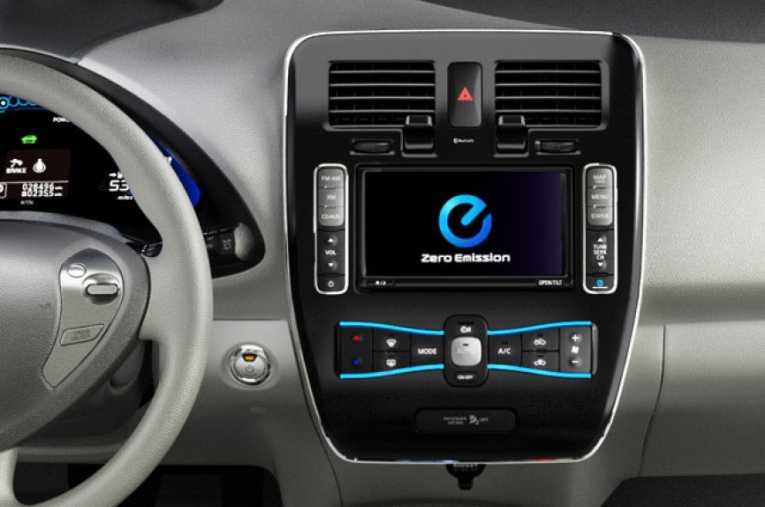Japan's Nissan Motor Company has just launched the world's first mass-produced electric car. Described as a major milestone in automotive history, the zero emission Leaf is a five-seater hatchback.
Being an electric car it has no exhaust pipe and it is seen as a promising alternative to the internal combustion engine as governments world wide seek to clean the environment and use less oil.
One of the down sides of the Leaf is the high initial cost. Nissan's suggested retail price for the Leaf is 3.67 million yen, roughly £28,818. Even after the Japanese government's electric vehicle subsidy has been deducted, the price is still £22,800, rather a lot for a five door hatchback.
Another drawback is the relatively short driving range. Japanese test standards give it a range on a full battery charge of 200 km (124 miles), but California's rules give the range as 160 km (100 miles), while the US Environmental Protection Agency's reading is a mere 73 miles. What ever set of figures you go by, the range is considerably less than what you would expect to get from a full tank of conventional fuel.
Nissan call this 'range anxiety' and in an effort to calm people's fears they have installed charging spots at about 2,200 dealers around Japan. Around 200 of these dealers have quick chargers capable of recharging 80 per cent of a car's battery capacity in 30 minutes. No problem if you don't mind queuing.
Nissan sees this as the start of a new era for the auto industry. Delivery will start in Japan and select US states almost immediately and the first cars will start to appear in Europe in the New Year. There were 6.000 initial orders for Leafs in Japan and 20,000 in the US and all have been fulfilled.
Nissan is in partnership with the French car maker Renault on this project and together they have earmarked €4 billion over the next few years to mass-produce electric vehicles and the batteries that power them. By 2013 the alliance will have the capacity to produce half a million batteries, some of which will be used on hybrid models.
For the time being production of the Leaf will be limited to 50,000 units per year, but once production begins in the US late in 2012 and shortly afterwards in Britain, this is expected to significantly increase.
Electric cars have been around for a long time and although their limited power and range have made them largely impracticable for the modern age, things are improving. Mitsubishi already have a small electric car on the market, currently selling around 5,000 a month and Volkswagen and Toyota are both developing cars of their own.
At present, an electric car would not be a sensible proposition for anyone driving more than 100 miles a day, but one option for people who only make the occasional long journey is to use an electric car for normal day-to-day use and to hire a conventional car for the times when they need to travel a bit further.










